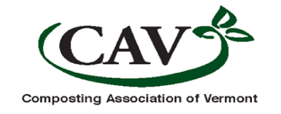Getting started with on-farm food scrap composting: Understanding regulations
Here you’ll find general guidelines, applicable to all locations, as well as recorded conversations with regulators in Vermont and New Hampshire
Toolkit Table of Contents
-
Learn more about this project
Farmer Partners in VT & NH
-
Identifying partners
Building relationships
Informational interviews
Understanding & addressing the “readiness gap”
-
Getting started
Understanding regulations (VT & NH)
Asset mapping exercise
Communicating with your community
Now what…?
Record keeping & recipe
Iterating
On-going communication with your community
-
Details coming
On-Farm Food Scrap Composting & Solid Waste Regulations in Vermont & New Hampshire
Do you know how Solid Waste Rules apply to on-farm food scrap composting in Vermont and New Hampshire? In this recorded Compost “Tea Talk" we discuss the relevant Solid Waste Management rules with guests:
Ben Gauthier from VT Department of Environmental Conservation, and
Mike Nork and Paige Wilson form NH Department of Environmental Services
(59:44)
Resources shared during this webinar:
Summary of Vermont Compost Facility Certification Requirements, including volume thresholds for food scraps.
New NH DES food scrap composting regulations
Many of the Rules cross-reference each other. For easy reference - here is a link to all of the NH DES Solid Waste Management Rules
Additional Resources
Image by Gerd Altmann from Pixabay
Community Composting Regulations Tip Sheet
The regulatory environment for community composting (below regulation volume thresholds) can be complex. Some states may require a compost facility permit or you may have to file for an exemption. There may be zoning approval required with local jurisdictions. If there will be offsite collection of food scraps, even with bicycles, this may require some sort of transport approval. This tip sheet covers different types of potential state and local regulations; set-backs and buffers, and - importantly - where to find more information.
Partnering Farms with Communities - A Regulatory and Start-Up Guide for On-Farm Food Scrap Composting
Vermont’s Farm to Plate Food Cycle Community of Practice has developed a new resource for farmers looking to expand on-farm composting in collaboration with their local community. The guide, Partnering Farms with Communities - a regulatory and start-up guide for on-farm food scrap composting, aims to clarify the regulatory landscape for both organic and conventional farms. It lays out potential options for community-oriented solutions to close regional gaps in the food scrap composting infrastructure currently available in Vermont. The guide also outlines strategies that small farms can utilize to create connections with residents, schools, food shelves, grocery stores, restaurants, and other organizations that manage food scraps and nutrients locally.
We now have a limited number of printed copies of this Guide. If you would like to request one, please email Natasha@CompostingVermont.org




